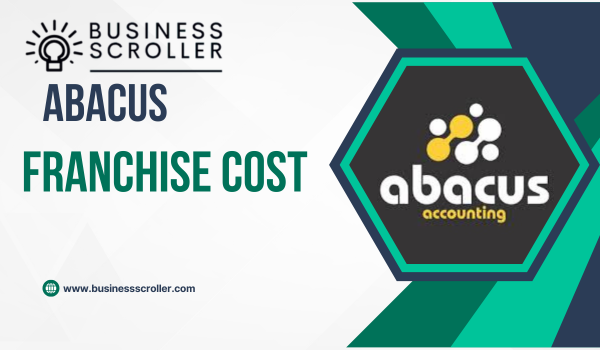Abacus and mental-arithmetic centres remain one of India’s steady education franchise segments — low fixed costs, high demand from parents who want early-age skill building, and multiple brand options (UCMAS, ALOHA, SIP Abacus, IndianAbacus and many regional providers). This guide pulls together realistic investment ranges, common franchise models, ROI expectations, eligibility rules and a practical step-by-step application path so you can decide if an abacus franchise fits your goals. Wherever possible I’ve used published franchise listings and brand pages to keep numbers grounded — but always ask each franchisor for a formal commercial sheet before paying anything.
Why an abacus franchise?
Abacus (and related mental-arithmetic) centres typically teach children aged ~4–13 using a mix of physical abacus training and mental calculation techniques. Advantages for franchisees:
- Relatively low capital outlay compared with large tutoring chains.
- Predictable recurring revenue (monthly batches).
- High parental willingness to pay for perceived cognitive benefits.
Because many abacus brands offer standardised curriculum, teacher training and marketing support, new entrants can ramp up faster than an independent tuition centre.
Franchise models you’ll find
- Single Unit / Learning Centre — the most common: a classroom (150–500 sq.ft.) offering multiple batches. Ideal for owner-operated or teacher-led model.
- Mobile / Tutor Franchise — lower space needs; instructors run classes at schools, community centres or student homes.
- Area Developer / Multi-unit — rights to open multiple centres across a city/region; requires higher investment but scales faster.
Different brands provide different models (some are FOFO — franchise-owned franchise-operated; others are FOCO / licence models). Check the brand’s expansion model before committing.
Typical Costs — Consolidated Planning Table

Below is a consolidated table built from multiple franchise listings and brand pages. These are indicative ranges — actual costs depend on brand, city and whether you choose a basic or premium package.
| Cost item | Indicative range (INR) | Notes & typical sources |
| One-time franchise / brand fee | ₹15,000 – ₹1,50,000 | Small local brands/kit providers can be ₹15k–₹50k; big names (UCMAS/Aloha/SIP) often ₹50k–₹1.5L. |
| Classroom fit-out & furniture | ₹20,000 – ₹2,00,000 | Desks, whiteboard, signage; depends on size. |
| Teaching kit & initial materials | ₹5,000 – ₹75,000 | Abacus sets, workbooks, certificates. |
| Initial marketing & launch | ₹10,000 – ₹1,00,000 | Local ads, demo classes, banners. |
| Working capital / security deposit | ₹20,000 – ₹2,00,000 | Monthly salaries, rent buffer, utilities. |
| Indicative typical total first-year outlay (single unit) | ₹50,000 – ₹6,00,000 | Low-end local providers under ₹1L; branded UCMAS/Aloha packages often fall in ₹2–5L ranges. |
Note: a number of local/regional abacus providers advertise extremely low kit-only “franchise” fees (₹20–50k) — those are often marketing kits rather than a full-service franchise with lead generation, training and continued support. Always confirm what the fee covers.
Revenue, pricing and ROI expectations
- Revenue model: monthly student fees (typically charged per term), one-time registration, exam/certification fees and occasional workshops. Many centres run 2–4 batches/day and aim for 100–300 students in steady state.
- Sample pricing: monthly fees commonly range from ₹400–₹1,500 per student depending on city and brand; special programs/coaching cost more. turn0search9
- Margins & payback: operating margins can be attractive because direct costs per student are low once kits are sold and teachers are trained. Many franchise summaries and operator anecdotes suggest payback times of 6–18 months for well-located single centres; premium multi-unit deals take longer to breakeven but scale better. Expect ROI to depend heavily on occupancy (% seats filled), effective marketing, teacher quality and batch scheduling.
Common eligibility criteria
While each franchisor sets specifics, common requirements include:
- Minimum age 21+, Indian national or Indian legal entity.
- Suitable premises (150–500 sq.ft. for a single classroom) or agreement with schools/centres for satellite batches.
- Basic educational aptitude and willingness to undergo teacher training (franchisors usually provide teacher certification).
- Bank KYC, PAN, GST (if applicable) and local permissions.
Step-by-step: How to apply
- Shortlist 2–3 brands (global names like UCMAS/Aloha and strong regional players). Compare what’s included: training, marketing, territory, royalty and ongoing support.
- Visit official franchise/contact pages and request a franchise disclosure / commercial sheet. Avoid signing based only on portal listings.
- Ask for references — speak with current franchisees to confirm average student counts, real costs and any hidden fees.
- Prepare documents & location information (photos, lease terms, business plan) and submit your application.
- Attend training & certify teachers — most brands mandate at least one certified instructor before you start.
- Launch with demo classes & local marketing, then monitor KPIs: students enrolled, revenue per batch, churn and teacher productivity.
Practical tips & red flags
- Prefer brands that provide demo-class leads or local marketing support — organic parent awareness takes time.
- Verify what’s recurring vs one-time: some brands charge ongoing royalties or compulsory material purchases.
- Ask for software/CRM access to manage batches and payments.
- Red flags: very low “franchise fee” claims without training/support, or demands for large unpublished commitments.
Final word
An abacus franchise can be a low-to-medium investment business with recurring cash flows and quick ramp-up — but outcomes vary widely by brand, location and execution. Expect realistic single-centre investments typically between ₹50,000 and ₹6,00,000 depending on whether you pick a local kit provider or an established brand like UCMAS/Aloha/SIP. Always obtain the franchisor’s written commercial sheet, review the agreement with a lawyer, and speak to existing franchisees before committing.

Shashi Kant is the Founder and Editor of BusinessScroller.com, a leading platform for business insights, finance trends, and industry analysis. With a passion for journalism and expertise in business reporting, he curates well-researched content on market strategies, startups, and corporate success stories. His vision is to provide valuable information that empowers entrepreneurs and professionals. Under his leadership, BusinessScroller.com has grown into a trusted source for in-depth articles, customer care guides, and financial expertise.


